Getting Your Commercial Kitchen Up and Running
August 29, 2019Getting your commercial kitchen up and running.
Serving Ware
If there’s nothing to serve the food on, there’s no restaurant. You’ll need tons of cutlery, plate ware, bowls, ramekins, cups, and glasses. Consider the number of tables you can fit in your restaurant and how many guests you hope to serve every night when factoring in how much to buy. Consider breakage – in the chaotic environment of commercial kitchens; it’s not uncommon to lose a plate or glass every few shifts.
Cooking Equipment for Your Commercial Kitchen
Consider what tools you’d need to execute your entire menu in one shift. Pots of all sizes, sauté pans, tasting spoons, mixing spoons, sheet pans, whisks, fish spatulas, ladles, bowls of all sizes, squeeze bottles, bench scrapers – the list goes on and varies widely depending on the type of food you want to make. You’ll also need more of each item than you expect.
Safety Equipment and Your Commercial Kitchen
Make sure your kitchen has proper safety equipment. A well-stocked first aid or medical emergency kit is crucial in a commercial kitchen that runs on fire and knives. Check your local fire department guidelines before purchasing fire, safety, or sanitation equipment, and avoid potential complications by always keeping your kitchen up to fire code standards.
Commercial Kitchen Freezers and Refrigerators
All commercial kitchens require a refrigeration system of some type. Without a fridge, you can’t keep the ingredients and prepared foods fresh. Freezers are also crucial for inventory management because it’s much more cost-effective to buy 300 steaks and freeze them than to buy ten steaks every day.
Industrial-grade refrigeration units are designed to meet the unique needs of the food industry. For example, they can cool large pots of sauce to a safe temperature in record time, so they’re a crucial purchase for any food handling operation. You’ll have to decide between reach-in units and walk-in units.
Make sure to seek professional help for installation and that you know how to properly maintain your unit, as they can be costly to repair.
Food Preparation Counters and Cutting Boards
Prep tables, counters, and cutting surfaces are essential to any commercial kitchen and come in various sizes. Choose preparation surfaces made of stainless steel, sturdy against corrosion, doesn’t absorb bacteria from food or meat and can withstand the harsh cleaning products used in commercial kitchens. On the line, you’ll want food prep counters that have small refrigerators underneath them for easy access to food prepped for each station.
As for cutting surfaces, choose either plastic or wooden cutting boards. Plastic boards are more comfortable to sanitize but can develop deep grooves that can hide bacteria. Wooden boards are generally tougher to clean than plastic ones but don’t develop grooves as quickly.
Ranges and Ventilation
If your restaurant plans on making anything but salad, you’ll need a kitchen range. The range is the powerhouse of the kitchen, so it’s essential to choose one that meets both your cooking needs. Like residential ranges, commercial units can be either gas or electric. If you’d prefer a visual, responsive cooking experience, go for a gas range.
Gas ranges make it easier to judge heat levels and change from high to low settings much faster than their electric counterparts. Alternatively, electric ranges have smooth, elegant, easy-to-clean designs and come in three sub-categories.
Standard electric ranges use coils to heat food, whereas you cook directly on the flat surface of smooth-top electric ranges. Electric induction ranges employ magnetic coils beneath a ceramic glass top to generate heat, but they require unique magnetic cookware to work.
Ovens
Most ranges come outfitted with an oven. If your operation centers around baked goods, it may be in your best interest to purchase a range with a convection oven setting. Unlike regular ovens, convection ovens have a fan and exhaust system that blow hot air around the food. They are a great appliance for roasting, toasting, making pies and cookies, or dehydrating.
Sinks
Sinks are vital to any kitchen because they provide running water as well as space for handwashing, cleaning produce, defrosting frozen meat under running water, or washing the occasional cooking utensil as needed.
Health and safety authorities typically require commercial kitchens to install a triple-sink wash station and a commercial dishwashing machine, as well as a dedicated handwashing sink.
Don’t Buy a Commercial Refrigerator Before Considering These 4 Things
A commercial refrigerator is an equipment staple of every restaurant. There are several things to consider when acquiring a commercial refrigerator for your kitchen. When searching for the correct type of unit, here are four things to consider to help you choose the...
5 Ways to Get the Most out of Your Dishwasher
Dishwashers are an incredibly helpful timesaver, and in the fast-paced restaurant industry, staff and managers are desperate for even a small amount of extra time. Although simply putting dishes into a machine seems simple, if your dishwasher is not well-maintained...
How to Keep Having Fun while Running your Restaurant
Restaurant owners typically have a passion for cuisine. Opening and running a restaurant is exciting, providing the opportunity to fully explore and develop your vision. However, if you have been in the restaurant business for any length of time, you know that it is...
3 Great Reasons to Maintain Your Restaurant Equipment
As the owner of a restaurant, you want a healthy and clean business. In the hustle of everyday restaurant management, it can be easy to forget to take care of issues that don’t seem as pressing as the customer complaining that they got the wrong order or that their...
Avoid Surprises During an Appraisal of Your Restaurant Equipment
When it comes to time for your restaurant equipment to be appraised, confusion can set in. For the purpose of the appraisal, personal goods are given value, but goods that are classified as ‘real goods’ are considered part of the real estate or the building structure...
Essentials of Cleaning and Preventative Maintenance for Your Restaurant Equipment
When it comes to your restaurant equipment, regular cleaning and maintenance is essential for making sure your equipment lasts for years to come. And it isn’t simply a matter of making your food processors and commercial mixers more efficient. There are considerable...
3 Tips for Maintaining Your Commercial Oven
As a restaurant owner, buying a commercial oven is an enormous investment. You will desperately want this oven to work properly and you need to make sure it does. You are responsible for your restaurant business. But what if your commercial oven stops working on the...
5 Steps to Cutting Food Waste from Your Kitchen
Food waste is a problem around the world. Taking steps to prevent food waste in your kitchen doesn’t just make your restaurant more morally strong; it can also help you save money on ingredients and attract more customers. Here are some steps you can take to reduce...
Planning Your Equipment Needs When Your Restaurant is Expanding
Your restaurant is doing great, guests are coming in, and they’re spreading the word about the culinary masterpieces your restaurant offers, as well as the exceptional service that is provided by the kitchen equipment and staff. But with all the new business, you’ve...
How to Keep Cool in the Restaurant Kitchen
Being in the kitchen, it’s hard not to feel overheated, especially during the summer. The heat of the stoves and ovens will quickly make the restaurant kitchen somewhere you don’t want to be. How do you keep cool in the kitchen? We have brought together some of the...
How and Why to Make Your Restaurant Lead-Free
If you own a restaurant, then you already know how important water is to your operations, and that poor water quality can adversely impact the success of your business. That is why you should ensure a restaurant lead-free environment. Water is an integral part of all...
Can You Handle These 5 Types of Difficult Restaurant Customers?
No matter how much you love it, running a restaurant certainly has its challenges. It is time-consuming, hectic, labor-intensive and competitive. And to cap it all, there are the difficult restaurant customers you often have to deal with. It’s impossible to please...
5 Unique Restaurant Concepts Guaranteed to Thrill Diners
With restaurants on almost every block, having a unique restaurant concept can help set you apart, making your establishment stand out. These concepts may have taken a bit to catch on, but they have quickly become popular sellers. Here are 5 unique restaurant concepts...
How to Run an Energy-Efficient Restaurant
You probably don’t need to be reminded of the high cost of electricity in running a restaurant compared to an energy-efficient restaurant. Right now, many establishments, including restaurants, are going green and adopting eco-friendly strategies to conserve...
Tipping: A Restaurant Controversy
When it comes to tipping or no-tipping policies in restaurants, there are strong feelings on both sides. While many restaurants have implemented no tipping policies, others are strong proponents for tipping. Still others aren’t sure which policy is right for their...
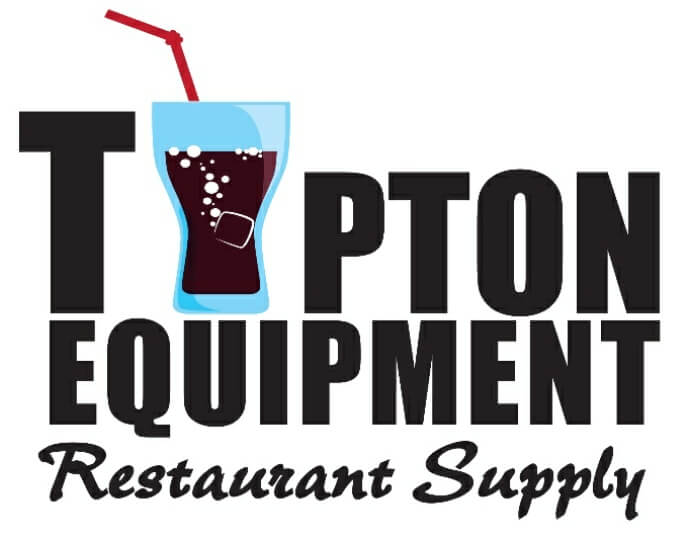



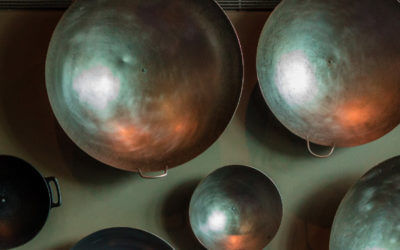

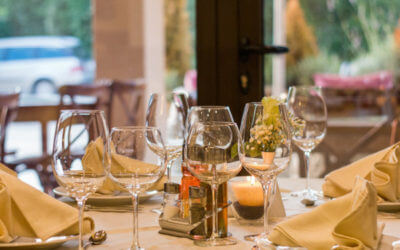
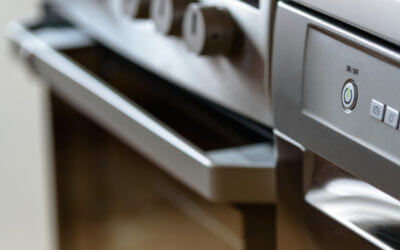

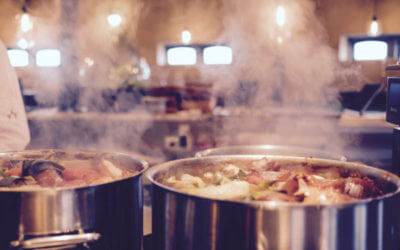
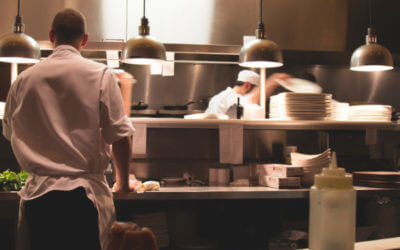





Ensuring adequate tableware is essential for any restaurant, but equally important is having reliable commercial food processing equipment to handle high-volume food preparation. With a fast-paced kitchen environment, investing in durable equipment can streamline operations, reduce downtime, and meet customer demands efficiently, helping restaurants serve quality meals without delays or setbacks in service.